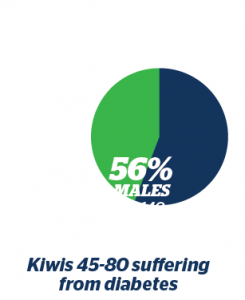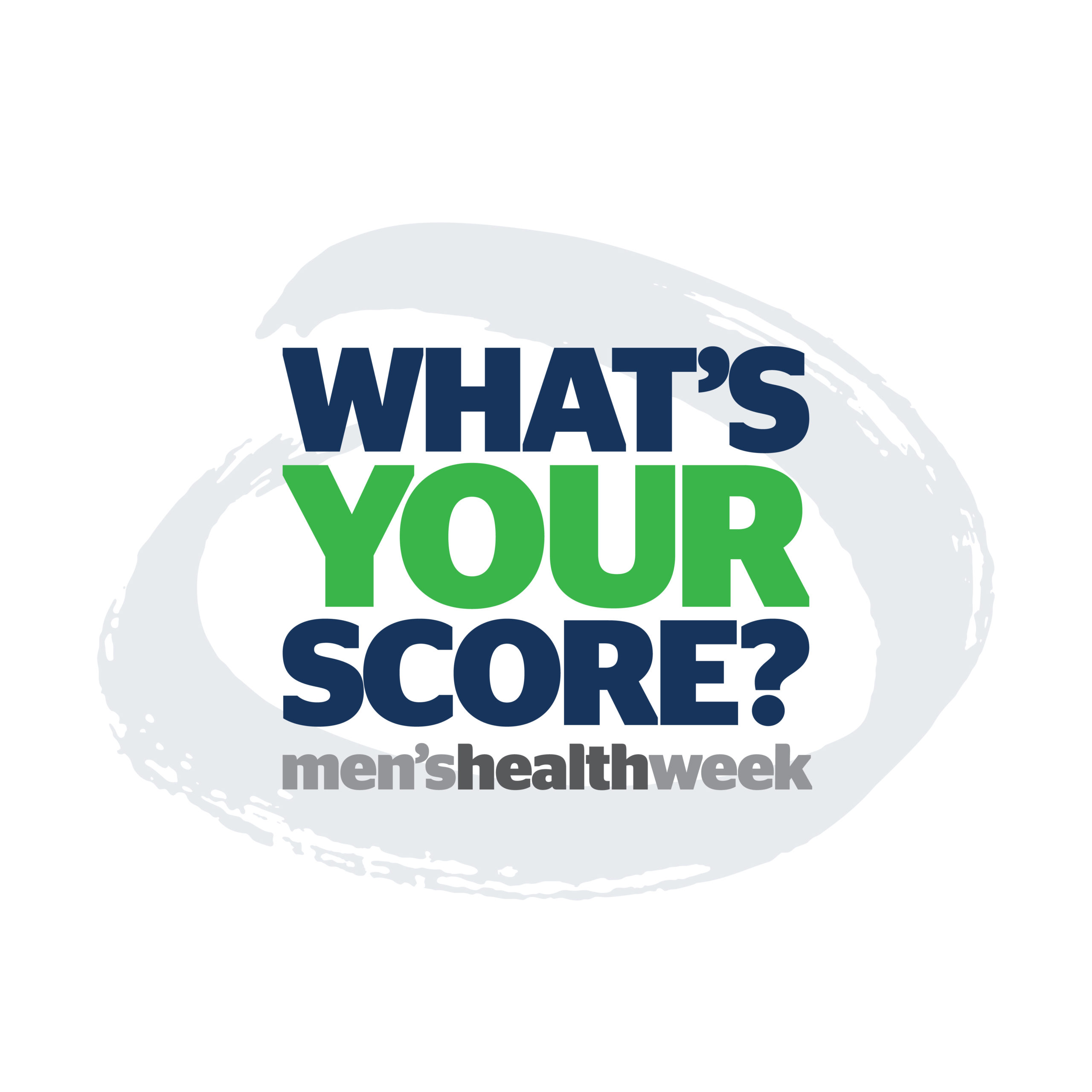Diabetes is New Zealand’s fastest-growing health crisis, affecting more than a quarter of a million people. The number of New Zealanders living with diabetes has doubled from 125,000 to over 265,000 in the past 10 years, with 40 new diabetes diagnoses every day.
Everyone is at risk of diabetes and one in four New Zealanders is believed to have prediabetes.
- That’s more than 1.3 million people, who in many cases, could prevent or delay the onset of type 2 diabetes with a healthy lifestyle of nutritional eating and regular exercise.
Taking your men’s health check and visiting a health professional is a great way to assess your risk of diabetes.
There are so many simple ways you can reduce your risk.
How much do you know about diabetes? Take the quiz
Small changes can make big differences
What you CAN’T change
- Your age
- Your ethnic background
- Your family history
What you CAN change
- Your weight
- The amount of physical activity you do
- What you eat
- Smoking
Small changes can make a big difference
- Reduce weight
- Be active for 30 minutes or more most days of the week
- Eat healthy food
- Achieve and maintain good control of your blood pressure and blood cholesterol
- Get an annual heart and diabetes check from a health professional
Jump to read more
Think you may have a hazardous waist?
About Diabetes:
Diabetes is an enduring disease that occurs when the pancreas is no longer able to make insulin, or when the body cannot make good use of the insulin it produces.
Insulin is a hormone made by the pancreas that acts like a key to let glucose from the food we eat pass from the bloodstream into the cells in the body to produce energy.
There are three main types of diabetes:
♦ Type 1 diabetes is usually caused by an autoimmune reaction where the body’s defence system attacks the cells that produce insulin. People with type 1 diabetes produce very little or no insulin.
People of any age can be affected, but it usually develops in children or young adults. People with type 1 diabetes need injections of insulin every day to control the levels of glucose in their blood.
♦ Type 2 diabetes accounts for at least 90% of all cases of diabetes. It can occur at any age and remain undetected for many years. It is often diagnosed following a complication or routine blood test.
Often people with type 2 diabetes can initially manage their condition through exercise and diet, however, over time some people will require oral drugs and or insulin.
One in four New Zealanders is estimated to have pre-diabetes, when the glucose in your blood is higher than normal but not high enough to be called diabetes.
♦ Gestational diabetes occurs when a pregnant woman has high levels of glucose in her blood. Gestational diabetes is temporary and usually goes after pregnancy.
Scary Statistics
The number of New Zealanders living with diabetes is an estimated 300,000+[i] It is believed approximately 90% of new diagnoses are type 2.
There are, on average, 40 new diabetes diagnoses every day in New Zealand and the number of Kiwis with type 2 diabetes is expected to increase by 70-90% in 20 years.
One-in-four (25%) New Zealanders are estimated to have prediabetes. That’s nearly 1.3 million of us.
Pacific people have the highest estimated rate of diabetes at 118.8 cases for each 1000 of the population followed by the Indian population (101.3 per 1000) and the Māori population (70.1 per 1000).
The ‘European or other’ population had the lowest estimated rate of diabetes at 30.1 per 1000 people.
Diabetes rates are 2.6 times higher for people living in the most deprived areas of NZ than those living in the least deprived – 69/1000 against 27/1000.
A person’s risk of progressing from prediabetes to type 2 diabetes can be roughly halved if they lose weight, change their diet, increase exercise and/or have drug treatment.
[i] Source – Ministry of Health Virtual Diabetes Register 2021

